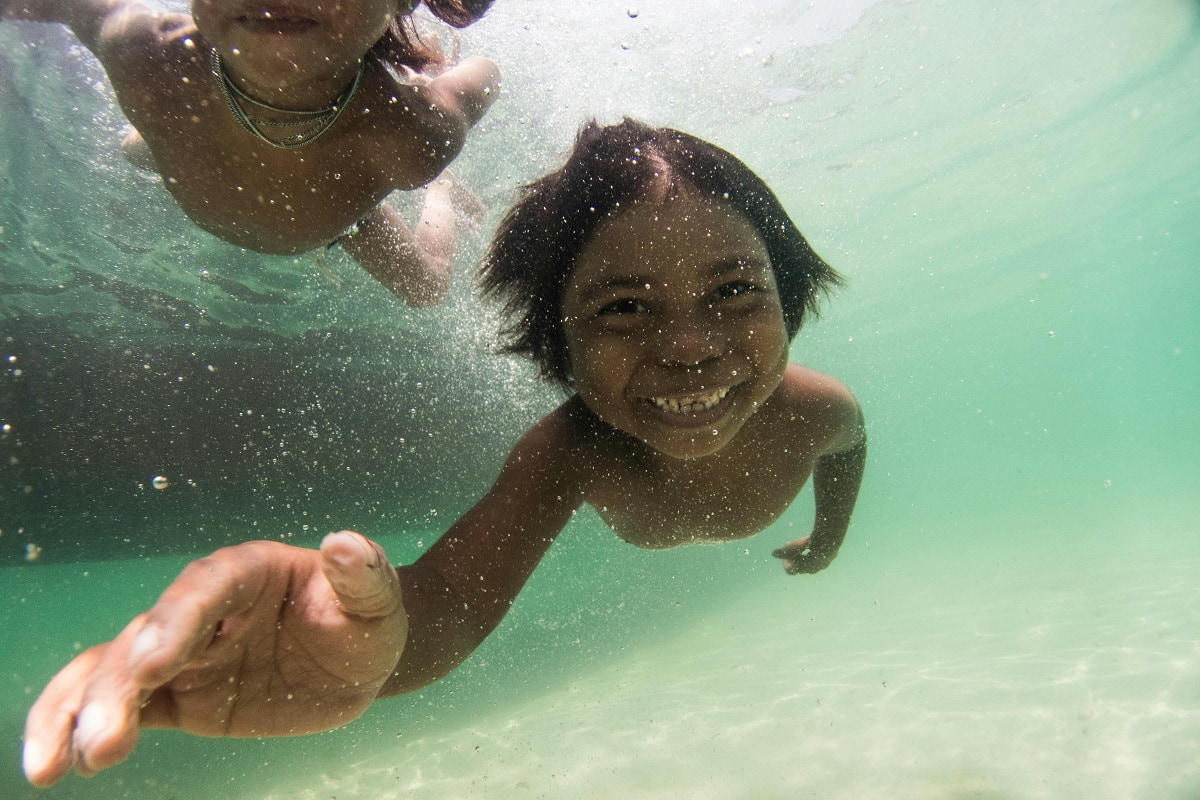For the past 4,000 years, the Moken people, a Southeast Asian seafaring group, have travelled between Thailand and Myanmar, spending most of their time on boats known as kabang, and relying on the ocean’s bounty for sustenance.
However, the Moken way of life, honed to thrive in harmony with the sea, faces an uncertain future. The present generation may be the last to benefit from the intricate knowledge of tides, constellations and marine life passed down through its oral traditions for centuries.
The plight of Southeast Asia's sea nomads extends beyond the probable loss of their way of life and cultural legacy.
The Moken’s situation mirrors the greater issues facing Southeast Asia's sea nomads, including the Bajau, Orang Laut, Duano and others. For generations, these groups, which collectively comprise around a million people, have navigated the waters between Indonesia, Malaysia, the Philippines and Thailand. Overfishing, pollution, climate change and various government policies that may not fully recognise their traditional way of life all pose threats to their very existence.
The scale of the challenges faced by sea nomads is daunting. A 2019 study by the Center for Strategic and International Studies suggests a substantial decline in fish stocks in some areas frequented by Southeast Asian sea nomads. The study reports a decline of up to 95 per cent in certain fish populations over several decades. This poses a serious threat to the principal food source of the seafaring groups.
Climate change is also likely exacerbating the threat to sea nomads in Southeast Asia. According to a 2021 report by ADM Capital Foundation, a Hong Kong-based philanthropic organisation, a modelled scenario combining a significant increase in fishing efforts with severe climate change showed substantial economic losses.

Further exacerbating these issues are well-meaning government policies with unintended consequences. For example, plans to relocate the Bajau Laut community in Malaysia, to make way for tourism infrastructure in Semporna, are supposedly aimed at economic development and improving access to education and healthcare for sea nomad communities. However, the government often fails to consider the profound cultural and traditional ties sea nomads have to their maritime lifestyle. Similar cases exist in Indonesia and the Philippines.
The plight of Southeast Asia's sea nomads extends beyond the probable loss of their way of life and cultural legacy. It also serves as an early warning sign for the health of the region’s marine ecosystems, posing a challenge to Southeast Asia's ability to collaborate on complex regional issues. Southeast Asian countries must respond in a coordinated and proactive manner to preserve these communities and the environments on which they rely. Regional cooperation and shared responsibility on providing trustworthy data, establishing transboundary protected areas, and building co-management plans that incorporate the sea nomads themselves are part of the solution. Most significantly, these activities must emphasise and protect the sea nomads’ way of existence.
The first step to encourage regional cooperation requires a thorough understanding of the sea nomad populations. Unfortunately, reliable data on their current numbers remains elusive. Collecting comprehensive data and establishing a centralised system to document and preserve the invaluable data of these communities is essential. Such a database could serve as a critical resource, informing the development of regional plans, such as marine management strategies and climate adaptation initiatives.
Innovative solutions such as floating schools and mobile health clinics can serve nomadic communities while respecting their traditional way of life.
Taking this a step further, the countries of Southeast Asia could consider designating a transboundary protected area encompassing the traditional territories of sea nomad groups. This would be a long-term initiative, requiring careful planning and negotiation, and addressing the concerns of all stakeholders, including the sea nomads themselves.
Concurrently, individual countries could also explore co-management plans, where they partner with sea nomads in managing these areas. These plans require buy-in from all parties involved and need to be sensitive to the unique cultures and traditions of the sea nomads. By pursuing both approaches together, a far more comprehensive solution can be reached.
Crucially, such plans should prioritise supporting the sea nomads’ way of life, rather than imposing land-based assimilation. Innovative solutions such as floating schools and mobile health clinics can serve nomadic communities while respecting their traditional way of life. They can ensure educational equity for children without forcing them to abandon their deep connection to the sea. Similarly, mobile clinics can bring vital healthcare services directly to these communities, addressing their specific needs within their familiar environment.
The urgent need for regional support cannot be overstated. Without swift action, a generation from now, the irreplaceable knowledge and vibrant cultural identities of Southeast Asia’s sea nomads could vanish. This loss would be not only a cultural tragedy but also a significant environmental setback. Their generations-old understanding of the marine environment is a critical resource for conservation efforts, and their disappearance would leave a gaping hole in our collective knowledge.

